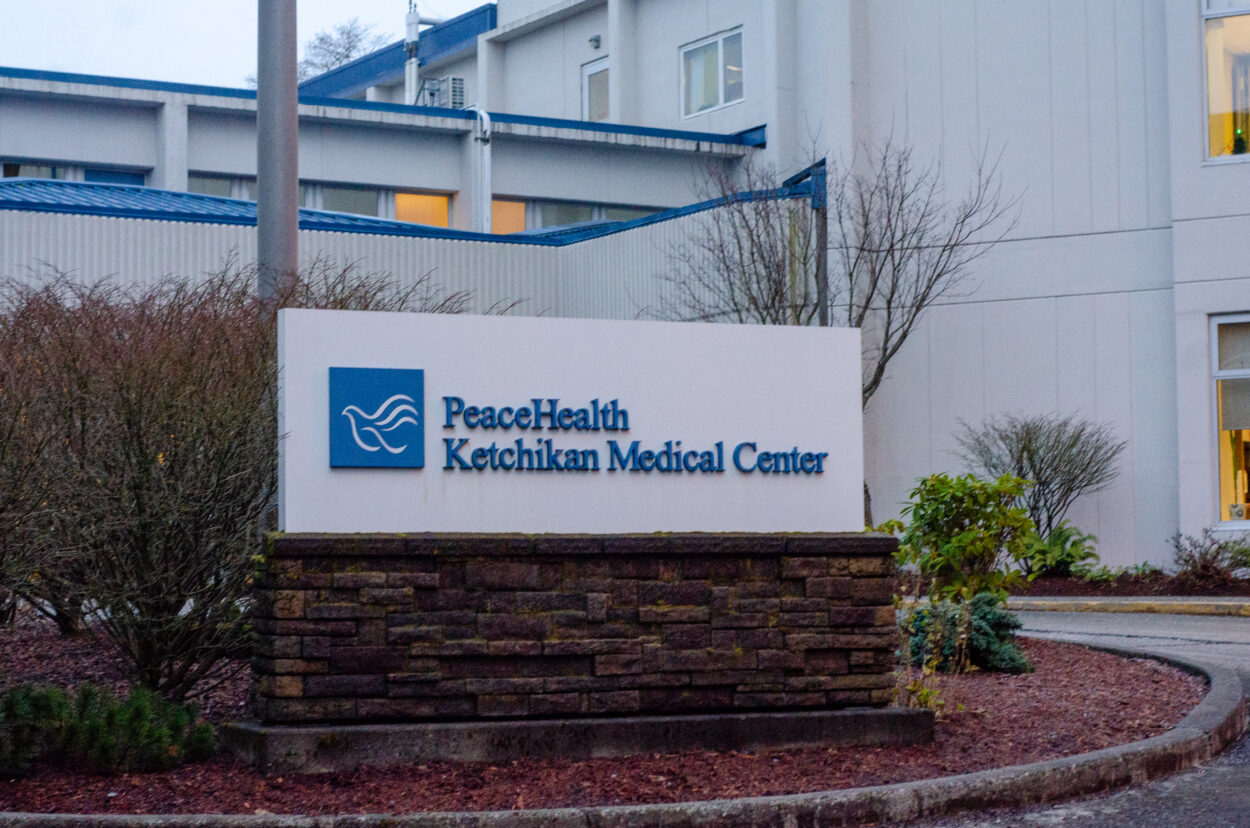A new lease with the nonprofit that operates Ketchikan’s city-owned hospital will get its first public hearing Thursday evening. The first vote on the 20-plus-year agreement between the city and Vancouver, Washington-based PeaceHealth follows more than a year of formal negotiations.
The new lease lays out a variety of repairs, upgrades and expansions for the hospital over the next decade. PeaceHealth would be required to begin a $5.3 million remodel and expansion of its emergency room. The city would upgrade a culvert at a cost of $1.2 million.
PeaceHealth and the city would share the cost of another $27 million in projects, including the replacement of the hospital’s leaky roof, a new helipad, a larger lab, and asbestos removal. The money PeaceHealth makes from services in Ketchikan would be required to be reinvested into the hospital. The hospital operator would also pay an annual lease of $100,000, which would periodically increase.
The new agreement also provides for a new Healthcare Advisory Committee designed to bolster city oversight of hospital operations. The committee would include representatives from city and hospital staff, along with members of the City Council and PeaceHealth Ketchikan’s Community Health Board.
The new committee would take public input and ensure PeaceHealth and the city live up to the terms of the agreement. It’d be required to hold public meetings monthly during the first year of the lease. After that, the committee would be required to meet at least once a quarter and produce a “report card” on the hospital annually. The 20-year lease allows for two 10-year extensions.
The new lease would add specificity to some contract terms. The consulting firm the city hired to help it negotiate the new agreement says the city’s current lease, first signed in 1981 and extended in 2002 and 2013, is rather general and lacks some specific provisions found in comparable agreements between public hospitals and contractors.
One of those relates to charity care — that is, PeaceHealth providing health care to people without the means to pay for it.
The city’s consultants say the previous lease requires PeaceHealth to provide a “reasonable” amount of charity care. The new agreement gets more specific: it states explicitly that the nonprofit must inform all patients of the financial assistance available and cover any gaps left by government insurers like Medicaid and Medicare. The lease would also require PeaceHealth to put an additional $50,000 per year towards community health programs.
Contract doctors practicing at PeaceHealth would also be required to participate in the same insurance networks as the hospital itself and abide by its financial assistance policy. That’s an effort to cut down on surprise bills.
PeaceHealth would also be required to open an urgent care center in Ketchikan within two years.
Another new provision of the lease requires PeaceHealth to ensure patients on 72-hour psychiatric holds do not escape the facility.
PeaceHealth Ketchikan Medical Center spokesperson Kate Govaars says the hospital system looks forward to a continued presence in Ketchikan.
“PeaceHealth is honored to have served Ketchikan for the past 98 years. We look forward to celebrating 100 years here and caring for Ketchikan and the surrounding communities long into the future,” she said via email.
PeaceHealth’s predecessor, the Sisters of St. Joseph of Peace, opened a hospital on Ketchikan’s Bawden Street in the 1920s. It’s run the city’s modern hospital on Tongass Avenue since it was completed in 1963.
If approved by a five-vote supermajority Thursday, the lease would come back for a final vote next month.
Ketchikan’s City Council meets at 7 p.m. Thursday in the Ted Ferry Civic Center. Members of the public have a chance to testify at the beginning of the meeting. The full agenda is online, and the meeting is live-streamed on local cable channels, the city’s website and social media.
Clarification: While the new lease prepared by the city’s consultants lists a plan to remove asbsestos in the hospital’s long-term care unit, PeaceHealth says the asbestos that would be removed is located in administrative offices.









